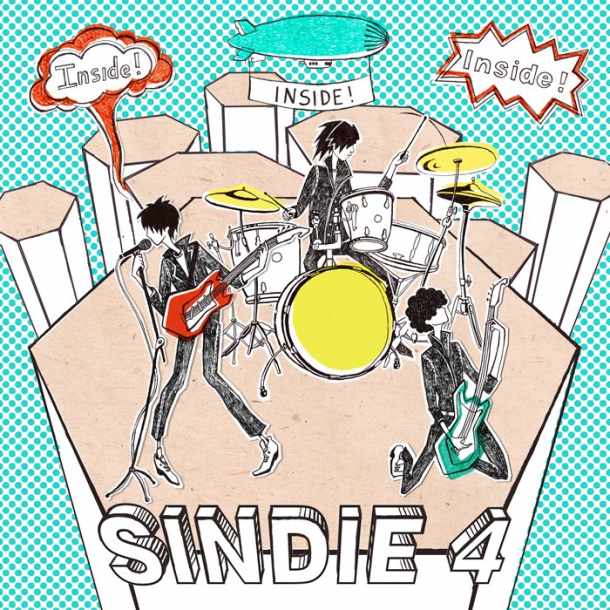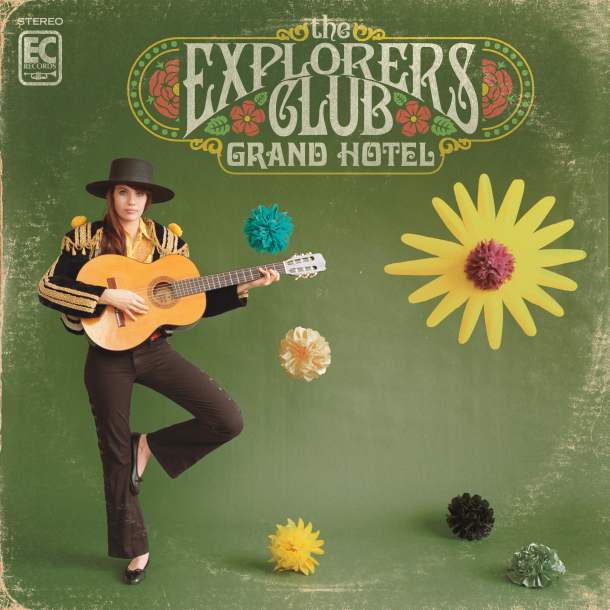
by Jay Platt
Bill Callahan has a voice like no other man on earth; it’s haunting, intimate, spontaneous and passionate. The first thing heard on Apocalypse is Callahan singing a single line, unaccompanied: “The real people went away.”
The soul put into this line alone creates the illusion that he is making up each of his perfectly worded lyrics on the spot. His beautiful voice lures the listener into the dark world of Apocalypse, which is much darker than his previous album, Sometimes I Wish We Were An Eagle (released in 2009). That opened with a jovial acoustic guitar riff, a precursor to the overall tone of Eagle; it was going to be beautiful, not quite unsettling. The beginning of Apocalypse lacks this reassurance, and consequently adds an air of darkness to the album. The rolling drum beat of the album’s opener “Drover” brings the song to life, immediately transporting you to another much darker and solitary place. The song is jam-packed full of emotion; even the guitar strumming seems full of energy and passion. This opening track brilliantly sets up the rest of Apocalypse.
The next effort, “Baby’s Breath”, begins with sparse instrumentation and builds up to a fantastic climax, only to die down again, leaving the listener wanting more. Thankfully the listener gets more, in the form of “America!” Musically, it’s somewhat repetitive yet unpredictably exciting. The ongoing guitar riff combined with the dominating drums keep the song driving forward, with Callahan’s lyrical ability showcasing their rare form of preciseness. He doesn’t use the conventional method of rhythmically placing syllables on the strong beats of the song, instead singing them in a way much more detached from the accompanying music. These lyrics are some of the best in his catalog, a message of how America is losing itself and its former glory: “Afghanistan, Vietnam, Iran, Native America / Well everyone’s allowed a past they don’t care to mention.” The album’s title also reflects this.
“Universal Applicant” is a stark contrast to “America!”; it’s a very cryptic song. Its interpretation seems to be quite subjective, more so than most songs. This is potentially indebted to the instrumentation, or it could rely on the lyrics. The minimalist guitar and piano riffs make the song feel on edge as if it’s about to explode into something chaotic, which despite his spontaneity is not a common term to describe Callahan. It does the opposite, and by the end of the song it traverses to a much calmer place.

This is the ideal state for the next song, a highlight of 2011, “Riding for the Feeling”. This song leaks pure passion; it’s clear that Callahan has put every last drop of sentiment into it. It tends to enforce an odd attachment to Callahan, in a personal and sympathetic light that makes one want to comfort him. “Riding for the Feeling” seems as if it’s sung in a reflective state, looking back on the last part of his life in sadness and wondering if things could have been different. Perhaps this is specifically about his long-term relationship with Joanna Newsom, with whom he had an emotional break-up period. Bill puts his soul into every second of it, and the result is heartbreaking and brilliant. The slow, pounding drums combined with the repetitive guitar chords create a melancholic effect that captivates you.
The final song, “One Fine Morning”, is slow, enchanting, and emotional. However, it’s not emotional in a sad way, but in a nicely uplifting and comforting way. I hesitate to call Apocalypse a “storm”, but saying that “One Fine Morning” is like the calm after a storm is an apt description. It reassures the listener that everything’s going to be fine and that life goes on, no matter how ugly the world is becoming.
As a whole, the album works beautifully. Throughout, it is driven by Callahan’s two-piece band but led heroically by his phenomenal voice. He chooses each word carefully and intricately lays them over his touching compositions, just at the right time. Apocalypse provides the listener with a unique and abstract view of not only how Callahan feels about himself and his scenario, but also about the world as a whole.

Bill Callahan – Riding for the Feeling





